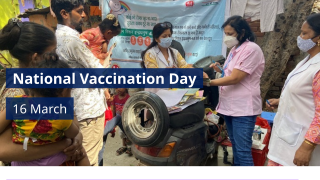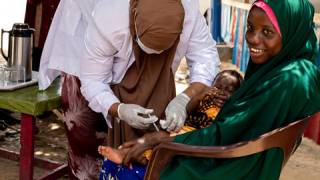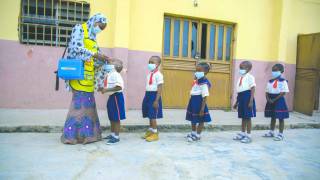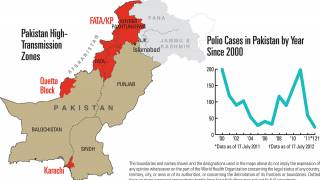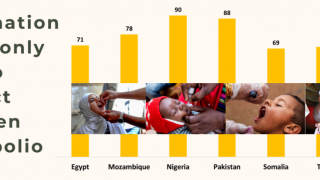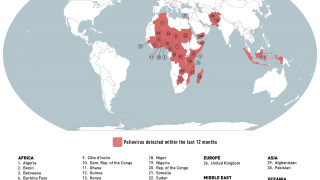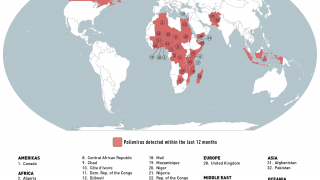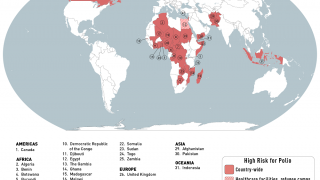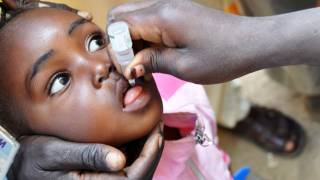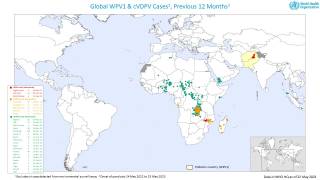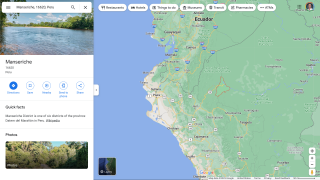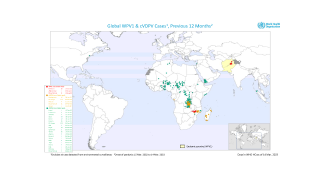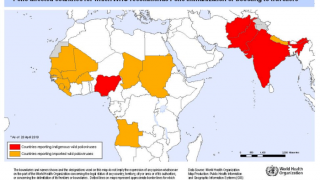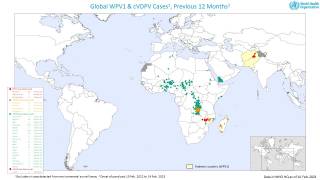New Jersey Pharmacies and Doctors Should Stock Polio Vaccines

The Medical Director of the New Jersey Department of Health (NJDOH) confirmed today that healthcare provider offices and pharmacies consider stocking Inactivated poliovirus vaccines (IPV) to increase access for people seeking vaccination.
Barbara Montana, MD, MPD, FACP Medical Director, NJDOH, published a letter on September 26, 2022, stating New Jersey (N.J.) residents have been seeking polio vaccination, particularly adults.
The NJDOH letter confirmed 'most adults do not need a polio vaccine 'booster' because they were already vaccinated as children.'
However, 'polio vaccination is recommended for adults who are unvaccinated, are incompletely vaccinated, or who are at greater risk for exposure to polioviruses, including international travelers, laboratory workers, and healthcare professionals.'
Today's action by the NJDO is related to a poliovirus case with acute flaccid paralysis (AFP) confirmed in an unvaccinated adult in Rockland County, New York, on July 18, 2022.
As of August 31, 2022, no poliovirus has been detected in N.J. residents or wastewater samples.
In addition to Rockland County, New York City, Sullivan, Orange, and Nassau Counties in N.Y. detected poliovirus in wastewater samples in 2022.
'We urge healthcare providers to maintain vigilance for polio, especially when evaluating individuals who live, work, or attend school in southeastern New York,' says the NJDOH.
Furthermore, the U.S. CDC stated on September 22, 2022, 'Adults who completed their polio vaccination but who are at increased risk of exposure to poliovirus may receive one lifetime IPV booster.'
Poliovirus is an enterovirus spread by the fecal-oral route and, less commonly, by respiratory droplet transmission.
An infected person may transmit the virus to others before and up to 2 weeks after symptom onset. The virus can persist in an infected person's feces for many weeks.
People exposed to poliovirus are at risk for infection 3 – 6 days after exposure.
Most infected people will not have symptoms but can still transmit the poliovirus.
About 25% of people will have flu-like symptoms, 4% will have aseptic meningitis, and .5% will develop symptoms of paralysis, typically occurring about 7 – 21 days after exposure.
Other poliovirus news is posted at PrecisionVaccinations.com/Polio.
Our Trust Standards: Medical Advisory Committee
